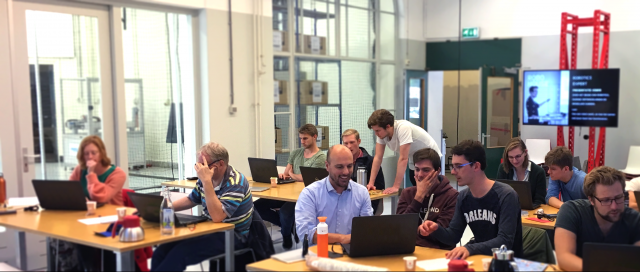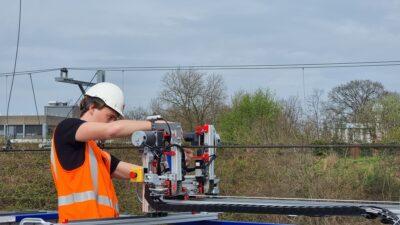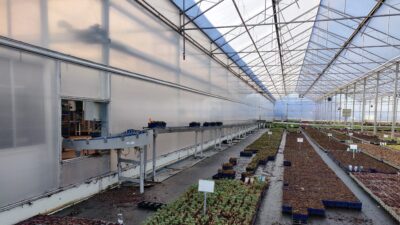ROS (Robot Operating System) is the most used software stack for robot developers. It is modular and accessible to anyone with a basic knowledge of programming, preferably Python. In 2018, RoboHouse started offering a 2-day course in ROS development with tutors from TU Delft. Since then about 80 people have taken the training, which is scheduled four times a year. There are still some places left for the upcoming edition on Friday 19 November and Saturday 20 November, but ROS Training is almost always oversubscribed.
Martin Klomp, who runs the course, points to three things that could explain this enduring love from the community – in particular from software developers in R&D, and from CTO’s and architects in robotics start-ups.
1. ROS is just very useful
Most robot development is related to software. You can buy any robot off the shelf, but to make your application unique you need specific software. ROS lets you do this, without getting tied to a particular supplier. This is especially attractive in early stage development, but some people stick to ROS even as they progress further.
2. The simplicity of ROS
It may take a couple of hours, it may take a day, but by the end of the training most people in the room have had their ‘seeing the light’-moment. They then start saying things like: “ROS is actually really simple, don’t you think?”
3. The growing ROS community
Through the training most participants also discover the growing ROS community in the Netherlands, which has had several live meetings in Rotterdam. This year RoboHouse is planning to host at least one of these gatherings on the TU Delft Campus. Expect a special kind of RoboCafé, filled with ROS lovers.
Here’s more information about the upcoming ROS Training.



